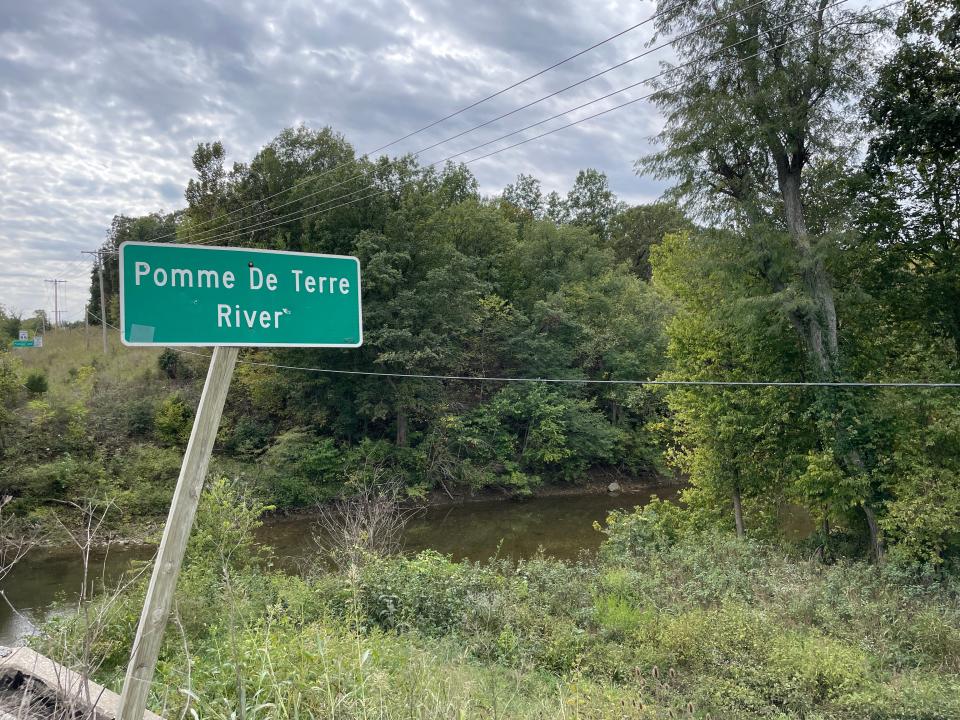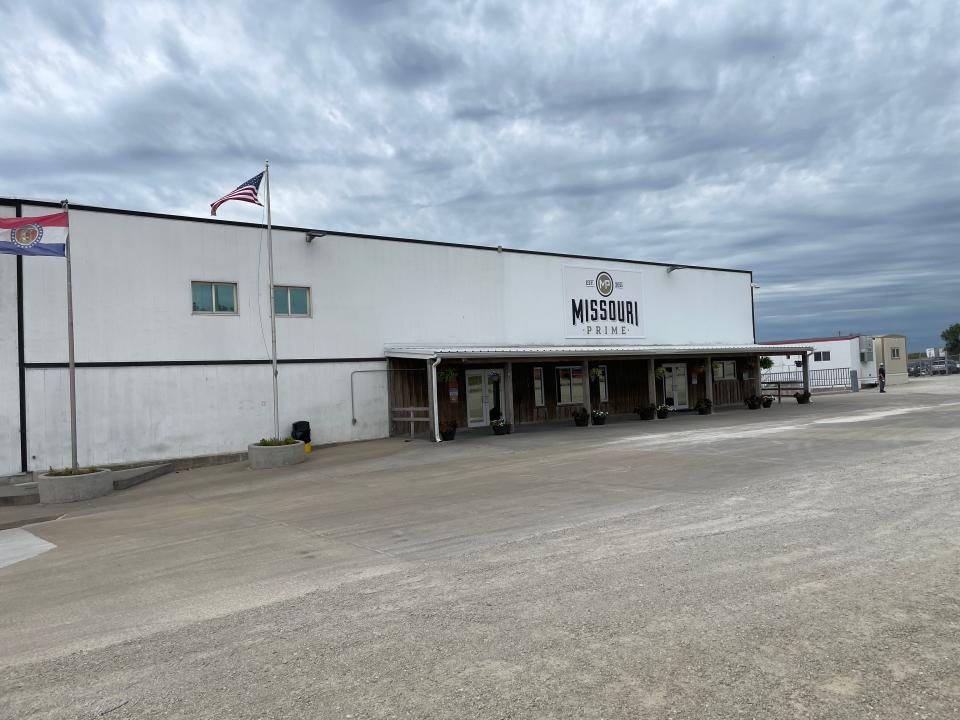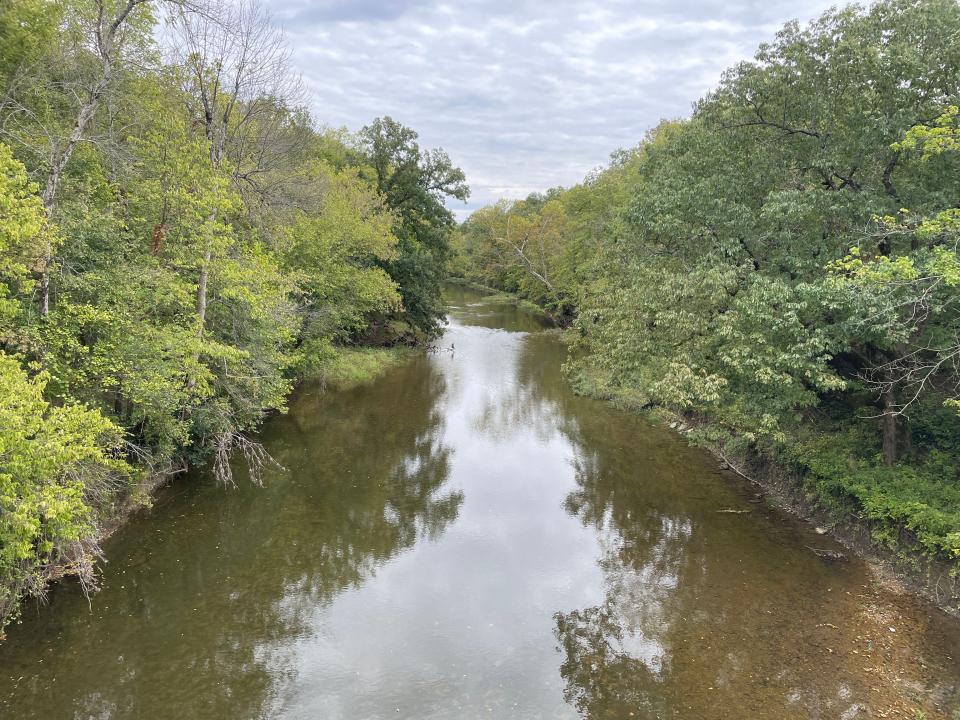Missouri officials signal intent to deny Pomme de Terre wastewater dumping permit
Residents in communities surrounding the Pomme de Terre River and lake celebrated a preliminary victory Tuesday in their efforts to protect the bodies of water from an infusion of treated wastewater.
The Missouri Department of Natural Resources, or DNR, issued a draft notice indicating their intent to deny Pleasant Hope-based meatpacker, Missouri Prime Beef Packers, a permit to dump their wastewater in the Pomme de Terre River.
But this is just the first of many hurdles to clear in preserving the Pomme de Terre River, as well as the lake it feeds into that shares its name.

“I feel like this is an analogy of a 12-ring boxing event. This is round one,” said Michael Nibert, a local resident. “We've come out with a very pleasing decision on the draft decision, but I need to emphasize this is a draft decision and won't be final until the public hearings are over.”
Public hearings have been scheduled virtually on Dec. 12 and Dec. 19, as well an in-person on Jan. 6 at the Pleasant Hope Middle School Gymnasium.
Heather Peters, the water pollution control branch chief for the Missouri Department of Natural Resources, said that the public comment period will last 60 days, twice as long as required, in order to ensure that every interested party has the opportunity to share their thoughts and ask questions.
“We received more comments on this site than we have on any other facility,” Peters said. “We've had a number of people that have been calling and asking about the process, when we were going to make a decision. We know that there's substantial interest in this and we want to ensure that anyone and everyone that wants to share their thoughts on this has an opportunity to do so.”
DNR will answer all questions presented by community members, although not in the public hearings. Answers will be provided by mail or email, depending on the method in which they were received or the method indicated by participants at the public hearings. Additionally, DNR will post questions and their answers on their website
“What we typically do is we provide all of the comments so anyone that's interested, knows everything that was provided, and all the questions that we were asked and we provide all of those responses so everyone would receive a copy of that,” Peters said.
A recap of facts pertaining to the permitting process so far

Missouri Prime Beef Packers, which was acquired by Texas-based STX Beef in May, processes roughly 750 cattle a day, five days a week. It is seeking a permit from DNR to dispose of up to 350,000 gallons of wastewater generated through beef processing daily.
Located near a tributary of the Pomme de Terre River, the facility proposed the use of a new technology called iLeaf to release microbes that create enzymes capable of breaking down pollutants before releasing them into the river.
While the system seems great in theory, Missouri Prime Beef was unable to produce satisfactory documentation to show that this technology would do what it claimed. The original permit application said this system had been used in Arkansas, but that could not be verified.
Peters said that any wastewater treatment technology that hadn’t been proven effective in Missouri was subject to higher scrutiny and needs additional data to be approved.
“All of that documentation, all of that proof, if you will, that this system can handle treating this wastewater down to the levels that we have deemed would be protective of our streams and water bodies here in Missouri, at this time, they have not demonstrated that that technology could meet that requirement,” Peters said.
Now, the Pleasant Hope-based meatpacker has a few options it can take in order to ensure continued operations. If it hopes to pursue disposal of its treated wastewater into the Pomme de Terre River, it must either provide the necessary documentation for an innovative technology, or pivot to a tried and tested wastewater disposal technology.
“They need to come back with an engineered designed plan that shows this is what the facility generates, this is the pollutant content, this is the flow and this is the treatment system that is going to be protective of our water quality standards,” Peters said.
The beef processing plant has not yet indicated how it plans to proceed.
“We appreciate our discussions with the Missouri Department of Natural Resources and their diligence in reviewing the proposal,” said Terry Maul, CEO of STX Beef Company, in an emailed statement. “In the coming weeks, we look forward to continuing our discussions with the Department to reach a solution that is safe, effective, and allows for continued operations.”
Currently, the facility has temporary authorization for land application of its wastewater, which will expire when a final decision is decreed on the permit to dump into the Pomme de Terre River.
However, it has received complaints about its land application processes from members of the community. DNR is currently investigating reports that wastewater is running onto neighboring properties, which have not given approval for land application.
“We know that there was runoff from the land application field onto a neighbor's field. That is something that we are definitely looking at,” Peters said. “It is not in accordance with the letter that they were issued that allowed them to continue land application.”
When the facility first opened in 2021, it obtained a permit to apply its wastewater to local fields, if owners gave their permission. The Missouri Fertilizer Board allowed facilities such as this to evenly spread the effluent on local farmland, but a rule change in July shifted land application permitting to the DNR.
Under the rules of the DNR, only 32 inches of wastewater can be applied per acre per year, meaning that the facility would need a minimum of 113 acres. It had agreements with local landowners for 109 acres, leaving it short of the required land to process waste from 750 cattle a day.
More: Community around Pomme de Terre Lake rallies against beef packers' plan to dump wastewater
Local business owners raise concerns about impact on recreational tourism

Members of the community were cautiously optimistic in celebrating the DNR’s draft permit decision, with many acknowledging the long road ahead in ensuring that the Pomme de Terre River and Lake are not polluted.
“It’s a slight relief, but we know it's not over,” said Monika Harper, a local business owner. “We know we're not out of the woods. We understand we need to stay vigilant and keep on this because they're not done.”
Harper owns SUP Happy Paddle Boarding Adventures in Wheatland, and she fears that business would decrease if Missouri Prime Beef is allowed to dump its treated wastewater into the river, which would then flow into the Pomme de Terre Lake and other connected bodies of water.
“We have heard quite a few people say that, ‘Hey, there's other lakes around here that we’ll go to,’” Harper said. “But they're all connected. So those are going to be affected eventually, too. So, instead of not coming back, why don't you help us fight?’”
Harper isn’t the only community stakeholder who fears that business will take a hit.
John Bledsoe has been actively opposing the wastewater permit on grounds that it will harm the environment, but also as a recent entrepreneur. He is about to launch his company, Co-Angler, which is designed to connect people to go fishing together.
“This could have an impact, a negative impact on the business that I'm creating,” Bledsoe said. “If they pollute this river and they pollute the lake and they damage the habitat for all the fish and wildlife, the people that are going to participate in my application are not going to have a destination to be able to go and recreate and catch fish.”
Bledsoe is a native of Pleasant Hope, who has a master’s degree from Missouri State University in natural applied science, with an emphasis in environmental chemistry. He is also involved in business accelerator programs in Springfield and the University of Arkansas, with plans to launch his new recreation app in two weeks.
“I'm no longer just John, the grassroots volunteer chemist, I'm also an entrepreneur of a tech company,” Bledsoe said.
He worked in tandem with DNR to collect samples of the water in the tributary of the Pomme de Terre River, testing water quality and flow rates.
He and DNR found that chlorides made up 386 mg/L, but “the threshold for chronic toxicity to aquatic life is 230 mg/L over four days.” Additionally, across five testing sites onthe river, “the average flow was 4.86 cubic ft per second. That translates to 3,141,100 million gallons per day.”
Adding an additional 350,000 gallons per day to that flow would mean that 11.1% of the river’s flow would come from Missouri Prime Beef’s treated wastewater.
“You're talking about one ounce out of every 10 ounces of water directly below Missouri Prime Beef Packers is coming from their treatment process,” Bledsoe said. “To me that's significant, and 10% is way too much.”
Granted, that would begin to dilute the further it moves downstream. Additionally, the flow rate of the water is generally higher at other times of year. For instance, in June, Bledsoe found a flow rate of 17 million gallons, meaning that the beef processor’s wastewater contribution would have been about 2% of the water flow.
“It's definitely a seasonal river that has its dry season and its wet season,” Bledsoe said. “That's the reason that people don't put their canoes on this river in the middle of August, because it turns into a trickle in several different spots.”
More: Mark Twain's original handwritten manuscript of 'The Adventures of Tom Sawyer' restored
A community comes together in crisis
Efforts to preserve the water quality in the Pomme de Terre River and Lake have brought together community members who share a mutual love of the bodies of water. Friendships have been formed, leading local residents to consider their fellow activists as family.
“I feel like we formed a little family,” Harper said. “It's kind of crazy how you don't know these people that live in your community, that you've had ties to all along. You just don't realize that until something like this comes up.”

Local resident Goldie Potter is already at work setting up in-person community gatherings for the virtual public comment sessions. Potter has been actively spreading the word about the community’s efforts for months.
“We’ll hold meetings for the two virtual conference meetings,” Potter said. “We have a lot of people who want to get together anyway. We like each other, and we get together every chance we get.”
The group of community activists are largely connected through their two Facebook groups, Pomme de Terre Water Watch Dogs and Protect Pomme de Terre, as well as their website.
“We're in a little bit of a lull between now and the sixth of January as far as any change of course, so we pretty much just need to maintain our direction,” Nibert said. “Our intent is to inform the public and get them involved, and there'll be some future things coming out of our group like water shoreline cleanup.”
Members of the group will be participating in the Light Up The Lake event, hosted by the Pomme de Terre Chamber of Commerce. This event features festive Christmas lights, music, carolers, and even a visit from Santa Claus. Donations are accepted, and those are split 50/50 between the group manning the entrance booth and the chamber’s Fourth of July fireworks fund.
“Protect Pomme de Terre actually is manning the booth on Dec. 25, Christmas Day,” Nibert said. “It's one of the biggest days of the turnout of the event, believe it or not.”
Even after the permitting process is complete for Missouri Prime Beef, this community group plans to continue on its quest to preserve the water quality in the rivers and lakes that they love. Bledsoe is working with DNR to set up a citizen scientist initiative project to monitor local water quality.
Other community members are working with the St. Louis-based group, Missouri Confluence Waterkeeper, a part of the Waterkeeper’s Alliance. This organization focuses on preserving clean water across the nation, but there is only one chapter currently in the state.
“There's only one Waterkeeper in the state of Missouri so far. So we're hoping to be number two, and kind of continue the fight,” Harper said. “I know there's going to be more stuff that comes up after this is resolved, there's going to be many more things that need to be addressed.”
This article originally appeared on Springfield News-Leader: Pomme de Terre wastewater dumping permit recommended for denial

